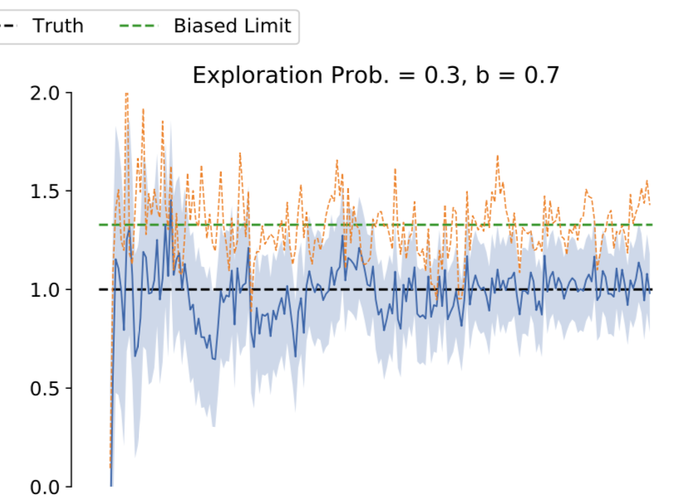

In the standard data analysis framework, data is collected (once for all), and then data analysis is carried out. However, with the advancement of digital technology, decision-makers constantly analyze past data and generate new data through their decisions. We model this as a Markov decision process and show that the dynamic interaction between data generation and data analysis leads to a new type of bias—reinforcement bias—that exacerbates the endogeneity problem in standard data analysis. We propose a class of instrument variable (IV)-based reinforcement learning (RL) algorithms to correct for the bias and establish their theoretical properties by incorporating them into a stochastic approximation (SA) framework. Our analysis accommodates iterate-dependent Markovian structures and, therefore, can be used to study RL algorithms with policy improvement. Furthermore, we derive a sharper trajectory concentration bound: with a polynomial rate, the entire future trajectory of the SA iterates, after a given finite time, falls within a ball centered at the true parameter and shrinking at another polynomial rate. We also provide formulas for inference on optimal policies of the IV-RL algorithms. These formulas highlight how intertemporal dependencies of the Markovian environment affect the inference.